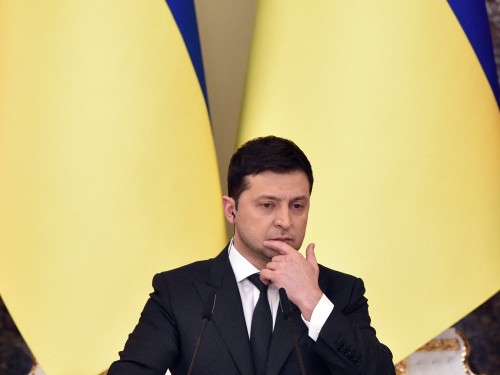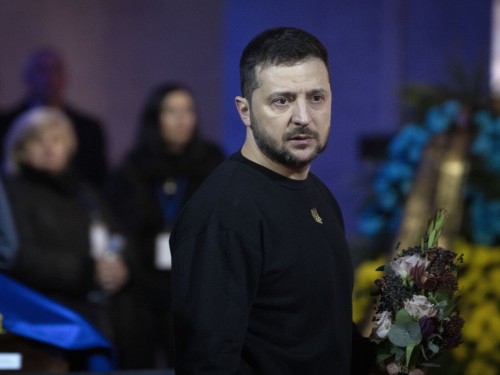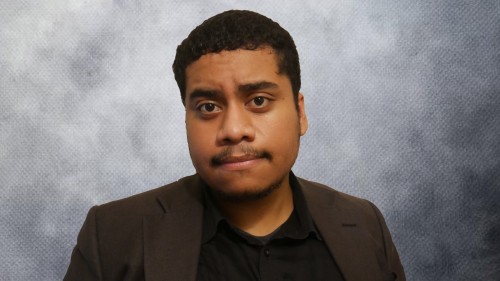Oct. 11—Israel’s Security Cabinet met last night to discuss plans for its yet-to-take-place strike against Iran for its Oct. 1 missile attack on Israel. Sources report that the decision has been made for a limited air strike on military targets, which exclude the provocative targets of the Iranian nuclear bomb project site or the oil fields and related infrastructure—targets desired by Israel’s bloodthirsty Prime Minister, the Butcher of Gaza, Benjamin “Bibi” Netanyahu—hits on which are deemed likely to provoke an all-out Iranian response leading to a regional war which Bibi wants to involve the United States in on his side.
Meanwhile, frantic behind-the-scenes diplomatic efforts are taking place to end the fighting on the Northern Front, and perhaps even in Gaza, with a ceasefire deal, and the withdrawal of Hezbollah from Lebanese border areas close to northern Israel—moves, according a source informed of the moves, that would “cut the balls off Netanyahu.”
This morning, Lebanese caretaker Prime Minister Najib Mikati said that Hezbollah agrees to implement UN Security Council Resolution 1701 from 2006, which mandates the withdrawal of its forces from southern Lebanon to north of the Litani River. Mikati added that Lebanon will ask the UN Security Council for a new resolution calling for a cease-fire with Israel, and that he has discussed with U.S. Secretary of State Antony Blinken efforts for a truce. Yesterday, Blinken’s State Department denied any knowledge of ceasefire talks.
Meanwhile, reports have it that if the Hezbollah-Israel ceasefire is implemented, Egypt and Qatar may submit a new proposal, crafted by CIA Director William Burns, for a ceasefire and hostage deal with Hamas in Gaza, but which NATO whore and Democrat Party Presidential candidate Kamala Harris has bullied Biden into having Burns withhold the plan, in order, she believes, to bolster Zionist support and secure Jewish votes Nov. 5.
The cabinet meeting was reported to be heated, with Netanyahu launching into a Hitler-like tirade against his Israel Defense Forces Generals and Security Services for lacking the guts to seize the opportunity to finally deal with Iran, for lacking the nerve to fully dismantle and destroy Iran’s proxy Hezbollah on the northern front, and for giving in to international pressure to end the war in Gaza. The military and security services, represented by Defense Minister Yoav Gallant, said Bibi’s stated goal in Gaza to completely wipe out Hamas was insane and unachievable, and that continuing to fight there will not yield positive results, and will kill all the remaining hostages held by Hamas. Gallant has stated that Israel has completed the mission of making Hamas no longer a threat to Israel. He called for an end to that war, a ceasefire, and a hostage deal, along the terms proposed in the modified American ceasefire-hostage/prisoner exchange deal, which most of the Hamas leadership, with the exception of its chief and Bibi’s co-evil twin Yahya Sinwar have accepted. Netanyahu, who has sabotaged all previous deals, has recently demanded that Sinwar must agree to surrender and then be exiled to another country, with anyone he wants to take with him.
Sources report that on the Northern Front, it is the military and Gallant, and not Israel’s Hitler, Bibi, who are making the decisions in the war, that now involves a limited invasion of southern Lebanon and continuous strikes on Hezbollah leaders and infrastructure. The IDF’s stated intent is to drive Hezbollah north of the Litani River, eliminating much of its capability to strike northern Israel and thus allow the more than 80,000 Israelis who have been displaced since Oct. 7 by Hezbollah rocket attacks to return to the safety of their homes. “The military, it seems, will not allow Bibi to unleash a Gaza-like genocide in the West Bank and Lebanon,” said a source familiar with Israeli policy discussions. Hezbollah is not Hamas, and a war with them would kill thousands of Israeli soldiers, and hundreds of thousands of innocent civilians. Such a war would force an Iranian response, and get Bibi his wider war, which would be a global disaster.
“The only way really to secure the Northern Front is through diplomacy,” said the source. “Some 18 years ago, there was a fragile peace there, following the last bloody war in Lebanon. That was shattered by the events of Oct. 7, and more importantly, Bibi’s response in Gaza. Hezbollah has already said it would end the fighting, without condition, and would seek a negotiated settlement. This has given some strength to the plan for a more moderate response to Iran, with strikes limited to military targets. That, and the rather stern response that Bibi got in his talks with President ‘Sleepy Joe’ Biden two days ago, in which the President made clear that the U.S. would not necessarily come to Israel’s support, should an IDF attack on Iran’s nuclear facilities or its oil fields provoke a regional war.”
Biden also remains furious with Bibi for his sabotage of what the world came to know as the Biden proposal for peace in Gaza. A source reports that an angry Biden shouted out to a blustering Bibi, “What the hell is wrong with you, man? You don’t want peace? You hate peace? Your own people want peace and want to return the hostages. You want war, even if it kills your people held hostage. That’s no policy. War is no policy.” Bibi was pissed as hell, but he had to take it. And Biden did not back up his words with a threat to cut off aid, if Bibi does things that widen the war.
The cabinet agreed to the limited strike, with Netanyahu eventually going along. It is thought that the attack will not take place until after Yom Kippur, the Jewish high holy “Day of Atonement” Oct. 12.
That may yet give diplomacy a chance to work its ways. The source reported that there are other considerations involved: “If Israel attacks Iran, then there could be another response, tit for tat, so to speak. Iran did not target civilians in its Oct. 1 missile attack; it went after IDF bases. A surprising number of the missiles got through Israel’s defenses, even with shoot-down support provided by American warships in the area. It seemed to demonstrate that with a larger attack on military facilities, Iran could do a lot of damage—a possibility the Israeli military is certainly taking into consideration.”
And then there is the status of the commander of the elite Qods Force of the Iranian Revolution Guards Corps, Brig. Gen. Esmail Qaani, who has not been seen in public since Israel killed Hezbollah leader Hassan Nasrallah in a massive air strike on Beirut Sept. 27. Gen. Qaani had been sent to Lebanon ostensibly to help Hezbollah rebuild its leadership that had been decimated by Israeli strikes. But sources report that Oaani, whom the IDF had reported they had killed in an Oct. 4 raid on Beirut, is alive and is under investigation in Iran for being an Israeli asset, who helped provide the intelligence required by Israel for its strikes on the Hezbollah leadership. These sources report that suspicion was cast on him after the successor to Nasrallah, Hashem Safieddine, was also reported killed by an Israeli strike.
“This raises some other nasty questions,” said a source. “Nasrallah was known to be working toward a negotiated peace on the Northern Front, which made him an enemy of Bibi’s plans. It is reported that Qaani has been pushing Hezbollah to be more aggressive against Israel. This may also explain the killing July 31 of Ismail Haniyeh, head of Hamas, who was pushing for Hamas to lay down its arms. He was killed either by a projectile fired by an IDF operative or by a remotely detonated bomb planted in the Tehran compound where he was staying, under the protection of the Qods Force, during the funeral for the former Iranian President. Haniyah’s death turned Hamas over to the vicious Yahya Sinwar, who wants endless war, just like his co-evil twin Bibi.”
Yesterday, Sky News Arabic reported Qaani had suffered a heart attack while under interrogation. His condition is unknown at this time.
And, last but not least, Sinwar, who some—more in hope than with knowledge—had reported was killed by an Israeli strike last month in Gaza, resurfaced yesterday to call for Palestinians to martyr themselves by becoming walking bombs, “to kill the Zionists.” Israel is reported to be on high alert for such attacks on Yom Kippur. Sinwar, sources report, remains the main obstacle on the Hamas side to a ceasefire deal. “Isn’t it strange that somehow the IDF has never managed to get this guy,” said another source, who reported that Arab sources say he is in a tunnel somewhere in Gaza surrounded by hostages as a shield against IDF attack.
Oct. 11—NATO’s sock puppet dictator of Ukraine Volodymyr Zelenskyy has taken a big hit to his waning prestige, as first, U.S. President “Sleepy Joe” Biden cancelled plans to attend an “urgent” meeting of the Ukraine Contact Group scheduled for the coming weekend, citing a need to coordinate relief efforts to deal with the devastation to Florida and others areas affected by Hurricane Milton, and then, the meeting that was to take place at Ramstein Air Base in Germany, itself was cancelled, with no new date announced.
Those developments reportedly sent a frantic Zelenskyy into a rug-chewing fit that sources report included an attempt to call Biden to urge him to reconsider his decision denying authorization for the use of U.S.-built missiles to hit targets deep inside Russia’s homeland. Zelenskyy had hoped to use the Ramstein meeting to present his so-called Victory Plan to the supporters of the fight against Russia using Ukrainian bodies. The plan has been puffed up in the pro-NATO press, and by some the more insane Russophobes among the world’s misleaders, but it has been widely ridiculed by strategic analysts, because it does nothing to change the battlefield reality of a war that has turned into a rout for the Armed Forces of Ukraine, and focuses primarily on what is now thought to be a non-starter proposal, rejected strongly by Biden as a dangerous provocation that could lead to a nuclear war, namely, to allow the Ukrainians, with NATO help in targeting and telemetry, to use U.S.-supplied advanced missile systems to hit targets deep in Russia.
Meanwhile, in London, where British Prime Minister Sir Keir Starmer met Oct. 8 with NATO’s new Secretary General Mark Rutte and Zelensky, it was announced that the British would not give Zelenskyy approval, either, to use its Storm Shadow air-launched cruise missiles for such attacks. This surprised some observers, who thought that the Brits might try to force Biden’s hand by giving their unilateral endorsement to this escalation against the Russians. Last month, Starmer had come to the U.S. with a list of targets deep inside Russia and proposed that Biden authorize strikes on those targets in 24 hours; Biden refused, and sources reported that Starmer had politely threatened Biden that the British would go it alone.
Then, the following week, in late September, Biden was pressured by people in his own administration, including Secretary of State Tony Blinken and the whore for NATO and Democrat Presidential candidate, Vice President Kamala Harris, to change his position, but Biden refused and told Zelenskyy this twice, once on the sidelines of the UN General Assembly session, and then Sept. 26 in the Oval Office.
Rutte in London, meanwhile did his best to continue to push for escalation and offer their pupprt dictator some hope, saying that it was up to the individual nations who supplied the weapons to restrict their use, and that NATO, as a body could not interfere with this. He also, babbled, in response to questions, that he did Rutte, meanwhile did his best to continue to push for escalation, saying that it was up to the individual nations who supplied the wea not believe Putin's threats about attacking NATO, with either conventional or nuclear weapons, if the Ukraine attacked Russia with NATO-supplied weapons. But, despite such bluster, Zelenskyy's tour of NATO capitals left him with promises of support, but not the authorization to attack Russia.
“This is really coming down to the end for Zelenskyy,” said a source. “If there is no authorization to strike deep in Russia, he has nothing to divert attention from the battlefield fate of the Armed Forces of Ukraine, to which he had given insane orders to fight to the death and wasted lives in the failed effort to blow up the Kursk nuclear power plant, as they are being routed on all fronts, not just in the east.
“Meanwhile, strikes by the Russian Armed Forces have pretty much obliterated Ukraine’s power grid, making its suffering population to face the prospects of a long and cold winter. NATO and Ukraine’s equally absurd propaganda machine have pumped out stories that UAF is really not being routed, that they are just making a fast retreat, and are preparing, with new weapons, to launch a counteroffensive which will turn the war around.
“With what troops? The UAF lost 85,000 soldiers dead last month, including nearly all of the 15,000 terrorist support invasion force that went into the Kursk Region of Russia against the wishes of the military command. So far in October, the UAF has lost nearly 30,000 troops. Except in Kursk, the Russians are not even taking prisoners, as large numbers of Ukrainian soldiers are surrendering rather than fight. The RAF is simply disarming them and letting them return home to tell others the truth of the battlefield situation.
“At least for the moment, people in the U.S. and in Britain have taken notice of[Russian President Vladmir] Putin and other Russian spokesmen like [Foreign Minister Sergey] Lavrov’s repeated stern warnings of the possibility of nuclear consequences were NATO-backed deep conventional attacks against the Russian Federation to occur,” said the source. “These warnings have gotten people’s attention, including Biden’s and the few sane people in the British Establishment that realize the proposed attacks on Russia are a fool’s move. You have the CIA-led American intelligence community coming in on the side of sanity, with a secret report that says the war is lost, and nothing can change that. The report says that it is wrong to risk nuclear war for a lost cause—one that was really lost from the moment the Russians adjusted their force structure to commit the appropriate number of troops and weapons systems, after they had been induced to go in too light by spiked intelligence, planted by NATO.
“What sends the little puppet Zelenskyy into rug chewing fits and deep depression, given how he has lied to his people throughout the war,” the source continued, “is that he is about to be told by his elders in the military to call for an immediate ceasefire and negotiations with the Russians. Putin will try to let the Ukrainians save face, but there is no point in even bringing up the possibility of NATO membership for whatever remains of Ukraine. Any peace settlement will require the total dismantling of the nation’s internal Nazi political and military infrastructure as embodied by today’s followers of Ukrainian Nazi Stefan Bandera, in such formations as Azov. The Russians will gladly leave western Ukraine, but the Ukrainians will have to swallow the loss of the four eastern oblasts and the Crimea, and if Zelenskyy wants to stay around and alive, he will have to choke on all his silly statements about never giving up one inch of Ukrainian soil.
“So, the little puppet pleads and begs for authorization to launch the ATACMS at Russia,” concluded the source. “There may be talks about it, but I am told he will not get that release, despite the assertions he was given by NATO whore Kamala Harris. I am not sure that he can survive this politically, as inside Ukraine there is already a growing movement of desperate people who might just want to see Zelenskyy strung up. He can say what he wants, but if he is not going to negotiate with Putin, and soon, then he will wind up dead or on some NATO plane to Miami or perhaps Hollywood. When it’s over, his loyalty to the fools in NATO will have squandered more than 800,000 Ukrainian lives.”
Oct. 9—The Butcher of Gaza, Israeli Prime Minister Benjamin "Bibi" Netanyahu last night cancelled a trip to Washington by his Defense Minister Yoav Gallant to consult with his counterparts on possible Israeli response to Iran’s multiple missile attack of Oct. 1. Sources say that the fact that Israel has not responded so far, reveals that there is still a chance, albeit slim, to avert Netanyahu’s scheme to involve the U.S. in a regional war against Iran.
Sources report that Gallant, who has repeatedly called for Israel to accept a ceasefire/hostage release-prisoner exchange deal and that would lead to an end to Bibi's continued slaughter of Palestinians in Gaza, was also to confer with U.S. officials on a plan to de-escalate the northern front against Hezbollah, and the threat of the wider war against Iran. These sources say that Netanyahu "cut Gallant's balls off" in cancelling the trip, which the Defense Minister's office said he had approved last week. The Prime Minister's office denied that the trip had been approved and said that it was "delaying" such consultations with Washington until after Netanyahu had a chance to confer directly, by phone, with President "Sleepy Joe" Biden.
"Bibi wants to make it clear that he is in charge of policy, and that policy is more war and death," said the source. "But the reality, is that he is not running the show, entirely and that he is surround by military and security people, and others, like Gallant who want to limit his ability drown the region in blood, which these people fear will also be Israeli blood."
Now, at this late moment, only one pathway exists to stop such a war: A complicated maneuver that would force a ceasefire and hostage/prisoner exchange in Gaza, and end hostilities there; an agreement from Hezbollah to a ceasefire in southern Lebanon and their withdrawal north of the Litani River; and an Iranian agreement to back both agreements. The Iranian government, despite opposition from some of its more radical elements, has already indicated that they support such a plan. Sources report that the Russians, and President Valdimir Putin personally, have been working behind the scenes with Iran and its proxies Hamas and Hezbollah to outflank Netanyahu.
Sources report that the Russians have told Iran that they are not about to come to Iran’s aid directly, should a full-scale regional war break out. While this might encourage some of the more rabid war hawks to test this by unleashing the Israel Defense Forces (IDF) to hit targets inside Iran, including its nuclear facilities, the situation is more complicated. Washington has been told through backchannels that the Russians might seek to respond asymmetrically to such attacks, should they come, perhaps against NATO’s proxy Ukraine, including taking steps to accelerate Ukraine’s military collapse, to make sure that it happens before U.S. election day, Nov. 5—an “October Surprise” that could have devastating effects on the chances for election of Kamala Harris and the entire Democrat Party ticket.
The question is: will the White House and President Joe Biden finally put on the table the peace plan that U.S. chief negotiator CIA Director Willaim Burns has been carrying around in his briefcase for the last three weeks? He has been prevented from presenting it by NATO’s whore, Harris. That plan is now said to incorporate all elements of the complicated arrangement that would lead to a negotiated settlement of all aspects of the current crisis and already has the approval of Israel’s security services and its military leadership.
Haaretz reported that Burns said at a conference that "we face the very real danger of a further regional escalation." he added that Israel was "weighing very carefully" how it would respond to Iran's ballistic missile attack last week, and that it should build a strategy that "marries the use of force" with "good intelligence and ultimately smart diplomacy," aiming for a cease-fire with Hezbollah and "what has been a very elusive cease-fire in Gaza."
“It is significant that Bibi is not running the campaign on the northern front that has moved into a limited invasion of southern Lebanon,” said a source. “With an all-out ground invasion, Bibi clearly wants to have his genocide against the Palestinians extended into the West Bank and Lebanon, with a goal being to wipe out not just Hezbollah’s leadership, but the entire organization, which saner Israelis know is not possible. Realize, it was the IDF that announced the operation last week, not Bibi, stating that it had the more limited goal of making it possible for the tens of thousands of Israeli citizens displaced by Hezbollah air attacks, to return to the safety of their homes. That requires neutralizing or eliminating the capabilities of Hezbollah to strike Northern Israel with a Hamas-like murderous ground attack, or with rockets and [unmanned aerial vehicles] UAVs. This could be done militarily, but also by diplomacy and mutual agreement, as was done for 18 years, until last Oct. 7.”
Netanyahu is demanding a “massive” strike against Iran in retaliation for its Oct 1 180-ballistic missile salvo on Israel. But the source reported that although the Biden Administration says it supports the “right of Israel to defend itself,” it does not want an attack on Iran’s nuclear facilities or its oil fields. On the other hand, there is some support in U.S. circles for a more limited attack on one of Iran’s oil loading terminals, most likely Kharg, Iran’s largest—the one that was repeatedly bombed during the Iran-Iraq War (1980-1988) and subsequently reconstructed. Such a measure has been advocated by neo-con war hawk Edward Luttwak of the Hoover Institute, who says that destroying Iran’s oil shipping terminals would hit Iran where it hurts, in its oil income, and would leave it with less cash for its “terrorist” proxies, i.e., Hamas and Hezbollah. It is expected that Bibi will be told by the U.S. to concentrate on military targets, if an attack is launched, and sources in Israel report that the IDF supports this.
“The best alternative here is to get a settlement that de-escalates everything,” said the source. “I would say that it’s a long shot, but still possible because there are many people, both in the U.S. and in Israel, who want to see Bibi outflanked and cut off. Yesterday, Gen. Herzl Halevi, Chief of the General Staff of the IDF, declared that Hamas has been militarily defeated and is no longer a threat to Israel—a clear signal to everyone, including the Prime Minister, that there is no reason to continue the war in Gaza.
“Similarly, Hezbollah has declared that it is ready to accept a ceasefire on the northern front, without any preconditions, so that negotiations can take place—something proposed by the U.S. and others, but until now rejected by Hezbollah, without a ceasefire in Gaza. The only real pathway toward peace in the region, however, involves getting Bibi out of office and into prison for corruption. That happens if he is forced to sign any ceasefire deal, as his coalition will collapse.
“If we had a White House that was not bought and paid for by the Zionist lobby and its deep-pocketed financial friends; if we had a more than caretaker President; if we didn’t have a bitch running for President—we could probably get this done, pretty easily. But without the full power of the American Presidency behind any peace plan, it is worse than trying to push a pebble up a mountain. Nevertheless, we must still try, because the alternative—a regional war—is much worse.”
Meanwhile, CNN reported that Biden reportedly called Netanyahu "a bad guy" and "a fucking liar" in private conversations after clashing with the Israeli premier over Israel's conduct in Gaza, citing quotes from a new book by veteran journalist Bob Woodward. According to the report, in one conversation in April, Biden asked Netanyahu "What's your strategy, man?" The premier replied, "We have to go into Rafah," to which Biden responded, "Bibi, you've got no strategy."
Oct. 8—A growing consensus among intelligence analysts who are not on Global NATO’s payroll, is that NATO’s war in Ukraine is rapidly coming to an end in a defeat for their anti-Russian proxies. Several sources who have been in touch with some key commanders of the Ukraine Armed Forces (UAF) say that they are being told that it is really no longer possible for them to wage an effective defense anywhere, following what can only be described as massive losses last month and into the first days of October.
These sources report that in September, the UAF suffered losses of over 75,000 soldiers and huge amounts of military equipment. In the first week of October, UAF losses have reached more than 25,000. These sources say that not only are these losses—on top of the more than 600,000 Ukrainian military personnel killed since the beginning of the Russian Armed Forces (RAF) invasion in February 2022—unsustainable, but the enormity of death has demoralized the dwindling number of UAF troops, resulting in their widespread refusal to fight, defying direct orders by their commanders—orders that most of these commanders give half heartedly, anyway, as they come from the criminally deluded civilian leadership in Kyiv.
That civilian leadership is headed by NATO’s sock-puppet dictator Volodymyr Zelenskyy, who recently toured Europe and the United States seeking authority to launch advanced U.S. and British weapons systems against targets deep in Russia’s homeland—attacks which Russia’s leadership has made clear many times in many fora that they reserve the right to respond to even conventional weapons attacks with nuclear weapons, and which former Russian President and current national security official Dimitry Medvedev said could cause Russia to reduce Kyiv to “a melted spot.” Despite lunatic claims by Zelenskyy that attacks into Russia’s homeland could reverse the fortunes of the war, even his own military commanders have told him that such attacks would have zero effect on the battlefield, when Ukraine’s forces are daily being routed with large casualties.
Sources say that the RAF, in anticipation of the war rapidly coming to end in the next several weeks, with the exception of forces of Ukraine’s suicide invasion force in the Kursk region of the Russian Federation, are not taking prisoners of Ukrainian soldiers who seek to surrender; they are simply being disarmed and told to go home to their loved ones. In the Kursk region, it reported that the former 15,000-strong invasion force has now been whittled down to about a 1,000—mostly the insane Nazis of the Azov Battalion and foreign mercenaries, with the rest having been either killed or taken prisoner.
“These are the hard facts of this war, not what is reported in silly NATO propaganda puff pieces about the impending Russia defeat, if only the UAF could fire the ATACMS at Russia,” said a source, who has warned for months about this being the inevitable result of the NATO-provoked war. “There will be reports, mostly leading up to the [Oct. 12] NATO Ukraine Contact group meeting at Ramstein Air Base in Germany, to give the impression that the war can still be won by NATO/Ukraine, if there is massive NATO support for Ukraine as well as giving Zelenskyy the green light—along with NATO targeting and telemetry help—to use advance U.S. supplied weapons to strike targets deep in Russia.
"Despite being nagged by that whore for NATO, the nasty bitch [Vice President and Democrat Party presidential candidate] Kamala Harris to say 'yes' to such weapon systems deployments," the source continued, "President Joe Biden will never agree. So, if you hear that he does, before or after this meeting, then you know that he has essentially been moved completely to the side of policy decision-making. U.S. intelligence, led by CIA Director William Burns, perhaps one of the few competent people left in the mess called the Biden Administration, says that the war is lost and that nothing can reverse that. Others in the intelligence community also say that there is no sign that Russian President Vladimir Putin has any plans to attack any other country beyond Ukraine; that line that he did have such intentions, was always garbage. If Zelenskyy does not get approval for deep strikes, and soon, he is finished. He will either negotiate, or someone will put a gun to his head and end his criminal dictatorship.
“The people of Ukraine want the war to end, immediately if not sooner,” the source continued. “The high command of the Ukrainian military wants the war to end. In fact, for some time, they have been in not-so-secret discussions with their Russian counterparts, and have hammered out terms that could work for both. Ukraine is not going to be in NATO.
“I saw that the bitch Harris says she will consider this [NATO membership], but even she is having some second thoughts. What a jerk! Russia is the winner here, bitch. If you can’t live with that, then you should not be running for office, much less holding office. You stupid asses [in the Biden Administration] provoked this war, which has cost your proxy, upward of a million people, dead and wounded, in a war that could have ended in March 2022, before all this carnage. You let that fat moron [British Prime Minister] Boris Johnson shred a peace treaty that would have ended the war on much more favorable terms for Ukraine. You caused all those people to die—for what? Is the world any safer now? And you, Kamala, have the nerve to privately tell Zelenskyy that if you become President, you will let him launch those missiles against Russia, when Putin has warned you of nuclear consequences.
“Fortunately, I think that Ukraine’s military may try to call the question sooner than that,” said the source. “Remember, even should Kamala win, she is not the President until Jan. 20. Joe Biden is until then, and he apparently won’t play these games. Zelenskyy has no plan to deal with what is happening on the battlefield. His so-called Victory Plan is a joke, because the Ukrainian people know the war is lost. They are worried about the approaching winter, including in Kyiv. They have good reason to worry. As a result of the war’s destruction of infrastructure, Ukraine has greatly reduced ability to produce and distribute electric and other energy supplies, compare to before the war. People will freeze, and NATO can’t do anything to help. Were there an election today, Zelenskyy would be tossed out on his ear. A dictator, whose term expired May 20, he rules under a constitutionally dubious martial law decree. Kamala may have a thing for this punk, but the Ukrainian people don’t.
“We’re rapidly approaching a point in time when the Ukrainian military simply decides, they won’t take orders from insane people any longer, and they will not fight just so that NATO can bleed the Russians, when Ukraine’s soldiers and people die, when this war can be ended. The UAF can call for a ceasefire and negotiations. Many nations can come in and set up a peace conference. Donald Trump, were he to be elected Nov. 7, could be counted on to lay out the broad terms of some deal. He says he wants to do that, and the Ukrainian people would welcome such an effort.
“The danger is that some insane factions inside NATO, and within the Anglo-American elite might decide to do something crazy,” the source concluded. “There is some talk of Ukraine launching an attack on Belarus. Really? Now, there is no way that UAF command would go for that. But what if the Nazis in the Azov brigade were unleashed for such an adventure? No! There needs to be momentum now for peace. Putin is not stupid; in fact, he is smart. He will find some way to give Ukrainians ‘peace with honor,’ as long as there is no NATO membership. The outlines of such a deal are to be found in Putin’s June 14 proposals. This needs to be gotten done, before the crazies can play their games.”
Oct. 5--—The following was released yesterday by Jose Vega, Congressional candidate, 15th CD in the Bronx, New York.
"Once to ev'ry man and nation, comes a moment to decide."
This is such a moment for the United States. Our Constitution is under a state of siege, from forces, such as those in the present
Administration, that are driving us headlong into thermonuclear war. We don't even know any longer who's giving the orders in
Washington. Biden was forced to abdicate—not resign, but abdicate—because his controllers didn't want the American people to
see that, given his condition, someone else, or some committee, is acting as President—and none of us voted for them.
There has been a coup against the American Presidency, and we don't know, nor are we allowed to know, who is in
charge.
In this crisis, we need to declare our independence from the war party. I am running for Congress in New York, as an independent candidate, along with Diane Sare, who is running as an independent candidate for the United States Senate. We call ourselves LaRouche Independents, because the physical economic policies of Lyndon LaRouche to return the U.S. war economy to a manufacturing/mining/owner-operated agricultural economy, that uses energy-intensive advanced technologies for real production, is the only way to reverse a half-century of decline, decay, and theft from 250 million Americans. We say, “Make Wealth, Not War!”
Or, we can continue to have “Brand X Biden.” What is the price of this to the American people? Look closely at the Biden Administration’s response to Hurricane Helene. In the 2005 response to Hurricane Katrina, with all its problems, we had 20,000-plus National Guardsmen, as well as Army support. This time, there are less than 7,000. Where are they? Where is the Army? In Kuwait, Iraq, Jordan, Syria, Poland, Romania, maybe Ukraine—but not here. So our people have died by the hundreds in the Southeast, and the toll could be well over 1,000. Is that what the Biden Administration calls “national security?”
Reporter Malcom Kyeyune wrote in UnHerd today: “Those I have spoken to in North Carolina describe a disaster of ‘biblical dimensions.’ The only thing that comes close to it in recent history is the ‘Great Flood’ of 1916 in North Carolina…. During Katrina, more than 350 military helicopters were involved with the rescue efforts. This time, in a mountain disaster zone where many more helicopters are needed than in a coastal area, well below 100 helicopters have currently been committed.” Outrageously, “A decent portion of the Tennessee National Guard, rather than helping rescue Americans in their own home state, are currently deployed to bases in Kuwait…. This means that even though the victims of Hurricane Helene have found themselves stranded within a stone’s throw of some of the U.S. military’s more significant military bases—Camp Lejeune and Fort Liberty are both located in North Carolina—very little help has been forthcoming.”
I, Jose Vega, will not be silenced in the face of this assault on the General Welfare of Americans. When I interrupted the lying “Nobel Prize-winning” economist Paul Krugman at City College of New York Tuesday night [Oct.1], I said, "Uh oh! ‘No-Ball’ prize-winning economist here to tell us how great the economy is. I certainly wonder how great the residents of Asheville, North Carolina, must be feeling right now with no access to power or water or communication with the outside world!
“I wonder how enthusiastic they are about the economy right now. I wonder how enthusiastic the residents of the South Bronx must be feeling about the economy. Hey, maybe North Carolina should name itself Israel, so it can get $20 billion in aid, or Ukraine, so it can get $300 billion in aid.
“Maybe the South Bronx should do the same thing. I’m sure the economy is great for smug liberals like yourself who make $5 million….” Maybe you heard about this—over 30 million people worldwide did. This apparently stung Krugman so much that he lied about who I was and what I said, then, he wrote an op-ed that appeared in the New York Times. I couldn’t figure out why at first, but now I think I know.
I also had said: “Hey, is anyone going to talk about the fact we could be in a war with Iran in a few days? Or do we need to focus on the S&P 500? Is that what really matters, the S&P 500, when most people may not even be alive in a few days, just because we are on the verge of nuclear war?… All that stock market money goes to the military-industrial complex so that more innocent women and children are dead!”
And that’s what they don’t want the American people to realize. We are inches away from thermonuclear war because of the addiction to murder, mayhem and money by the “War Party.” Why do you think Dick “Halliburton” Cheney, and his evil offspring Liz Cheney would endorse Kamala Harris? There’s a history going back to 2001, of contracts involving the Cheney family and the British Ministry of Defense, including its Minister of State for Defense Procurement, Baroness Symons. And we all know the British role in the Ukraine War, including Keir Starmer’s recent attempt to convince Biden to allow long-range weapons to strike into Russia, as well as Boris Johnson’s destruction of peace talks in March of 2022.
If we are even going to get to the Nov. 5 elections alive, before a nuclear war happens, either by accident, or by design, we had better shut these people down—now—by waking the American people up—now! Do what I do, and intervene!! What you do, not on Nov. 5, but between now and Nov. 5, to stop the wars, cut off the war funds, and use human and material resources to aid Americans in distress, can save the lives of our people—and people all over the world.

















